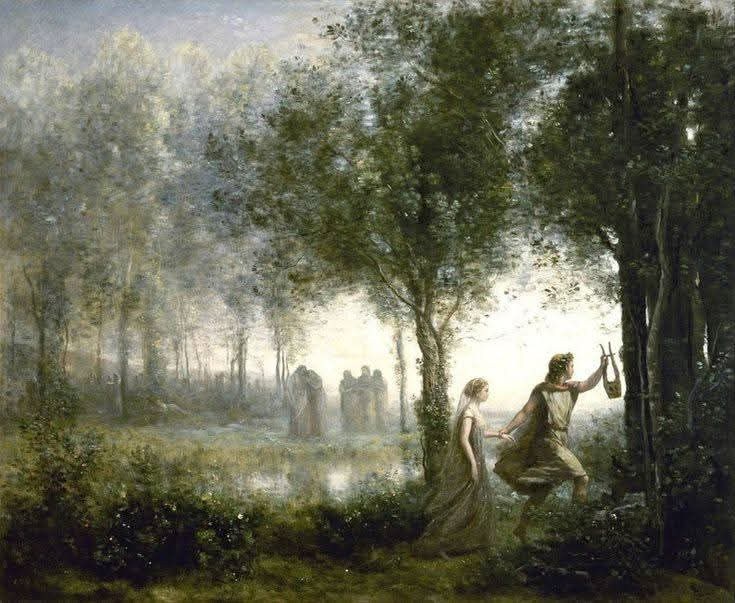Orpheus and the Immortal Lyra
- Imaginarium Magazine

- Aug 4, 2025
- 2 min read

After I started watching Sandman Season 2, I was reminded of the beautiful myth of Orpheus and Eurydice—a myth about love, the soul, and music.
They say Orpheus descended into Hades to bring back his beloved Eurydice.
With his music, he moved even the hearts of Pluto and Persephone.
But that one glance back—one heart-wrenching moment of doubt—cost him her soul forever.
And that’s where the real myth begins.
Eurydice is the Soul—the beloved yet elusive ideal, the beauty and purity that vanishes suddenly. Her death by the serpent’s bite (a symbol of transition and transformation) signifies the loss of innocence, the arrival of pain, or the necessity of spiritual purification.
Orpheus, the Spiritual Seeker.
The descent into Hades—his dive into the subconscious, the realm of shadows.
His lyre, the instrument of harmony, of Logos, of Art, bridges Life and Death for a brief moment. Orpheus is more than a poet or musician; he is an initiate. His journey into the Underworld with his art shows the power of Word, Art, and Music as vehicles of descent into the subconscious or the realm of the dead. His quest is a katabasis—an inner journey into the shadow to retrieve the lost Soul.

The gods of the Underworld are moved by his music. This shows that the spirit can stir even the powers of darkness, bending the laws of Death. Yet there is one condition: he must not look back at Eurydice before they return to the world above. This demand is a test of faith, of inner self-mastery, of trust in the unseen.
But when man seeks to confirm the Divine with the eyes of reason...
He loses the invisible the very moment he tries to see it.
Orpheus looks back... and there, Eurydice is lost.
Faith is lost. Vision is lost.
For the Sacred cannot bear the touch of certainty.
The moment Orpheus turns to look at Eurydice, he loses her forever. Here lies the core of the symbolism.
Perhaps the myth is telling us that doubt destroys faith. The desire to “confirm” the miracle may make it vanish.
Perhaps it means that the initiate who cannot endure the weight of the trial loses union with the divine or the archetypal.
And if we see it through the lens of love...
Love that looks back, that tries to “hold onto” the past, loses the present.

Just as, in general, you cannot bring back what has died...
A sorrowful myth...
And yet, something remains.
Orpheus dies, but his music does not.
The gods take his lyre
and place it among the stars.
Thus is born the constellation Lyra,
with the bright star Vega—gateway of the summer sky.

Orpheus himself did not become a constellation.
But his voice became eternal.
And whoever listens closely to the stars...
…may hear it.
The Lyre in the sky reminds us that Art does not die.
Nor does Love.
They only transmute.
Anastasia
July 2025



Comments